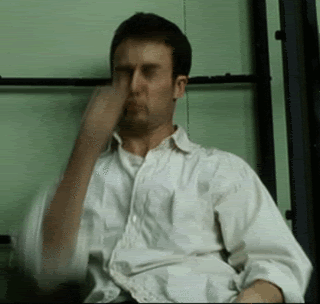This isn't the first time Oscar got it wrong--Citizen Kane anyone? Just a year ago Oscar got it wrong picking The King's Speech over the far better, more culturally relevant The Social Network. Though it's prbably a little bold to say, The Social Network might prove as revolutionary to our time as Kane was in the 1940's. In each respective case though, Oscar chose the "safe" route.
To further my disdain for Oscar's latest selections, I've turned my focus to the father of dramatic theory--Aristotle. It was he who brought up the idea of mimesis--a way by which good drama is evaluated as it mimics or replicates a representation of reality. Shakespeare took it a step further in Hamlet telling us that good thetre should "hold a mirror" up to the audience and reveal reality. In deed, we like movies because we find ourselves in them. In light of my mulling of Oscar stupidity coupled with the theory of the mirror holding itself to society, I found my review of The Social Network. It seems to echo my words and reinforce the theory of mimesis.

Take that Oscar!
The Social Network Succeeds with Snapshot of a Generation
By: Matt Howard
SUU University Journal
November 2010
Yet The Social Network, a film about the founding of online-fixture Facebook, is simply incredible.
Directed by David Fincher of Fight Club, Seven and Benjamin Button fame, The Social Network is without doubt one of the best films of the year. The film is a deft mixture of Greek tragedy, courtroom thriller, college comedy and coming of age tale. Each respective genre is intricately and respectively woven into the plot’s moral fabric.
Based on the true story of Facebook founder Mark Zuckerburg, the film explores the consequences of success in our day and age. The very idea of Facebook actually started as a plot for revenge after Zuckerburg was spurned by a lover. He aired his disgust for the girl who turned him down the only way our generation knows how to — by blogging. From there, he took his revenge to new heights and spawned FaceMash, a site which users could vote on Harvard students’ overall attractiveness. In a little over an hour, the site had received a staggering 22,000 hits.
Being the genius that he is, Mark Zuckerburg realized the idea for FaceMash could be added upon and thus Facebook was born.
All the while, Zuckerburg is played by a hauntingly distant Jesse Eisenberg, whose lightning quick wit is mixed with an innocent yet roguish blank glare. He is the complete embodiment of a cunning wolf in sheep’s clothing.
Along the way, Zuckerburg makes and breaks friendships. His best friend and business partner, Eduardo Savarin, played by Andrew Garfield, is his only real friend and yet Zuckerburg throws it all away in order to protect his precious website.
Justin Timberlake plays Napster — founder — turned — Zuckerburg — friend Sean Parker, who does his fair share of bragging and backstabbing to get to the top. His cockiness exudes the one-upmanship of this generation.
The story follows a disjointed time line. Edits switch from present courtroom depositions to past events that lead to the said depositions. It’s abrupt and hard to follow in the beginning, but really adds to the fluidity of the pacing and character development.
In the end, Zuckerburg, like so many of us, is left alienated — relegated to his digital Facebook friends. He is successful, but without true human connection and interactions we are left asking just how successful he really has become.
As far as the social commentary overtones — they are apparent in every frame. For the college generation, which this film is definitely speaking to, it’s as if we are staring into a mirror, finding the ugly visage of instant gratification, fame, fortune and individualism. The Social Network is very much a cautionary tale for this digital age of social interaction and self-induced online obsessive compulsive disorder.
In fact, as I write this review I must admit that I’m logged into Facebook.
The Social Network is so masterful, that some are labeling it the “Citizen Kane of our time.” My response to that can only be answered by borrowing the words from college football analyst Lee Corso, whose popular phrase is, “Not so fast!” Truly, The Social Network is something to marvel at but it doesn’t reach Citizen Kane levels — at least not yet.
Instead the film needs some time to marinate in our minds before we get too ahead of ourselves. For now it’ll have to settle as “The Breakfast Club of our time,” as a film which offers a succinct snapshot of a generation. So move over Molly Ringwald, there’s a new nerd at the table.
At the end of my viewing of the film, a friend posed the question whether Facebook was a fad? I kind of paused and thought about it only to reason that a company with 500 million users, valued at $25 billion dollars, in nearly every corner of the planet except maybe Antarctica, should be relevant for a long time. Undoubtedly someone told Bill Gates his “personal computers,” were fads and look how that ended.
Whether we like it or not, Facebook, like Katherine Heigl romantic comedies, are here to stay.

No comments:
Post a Comment